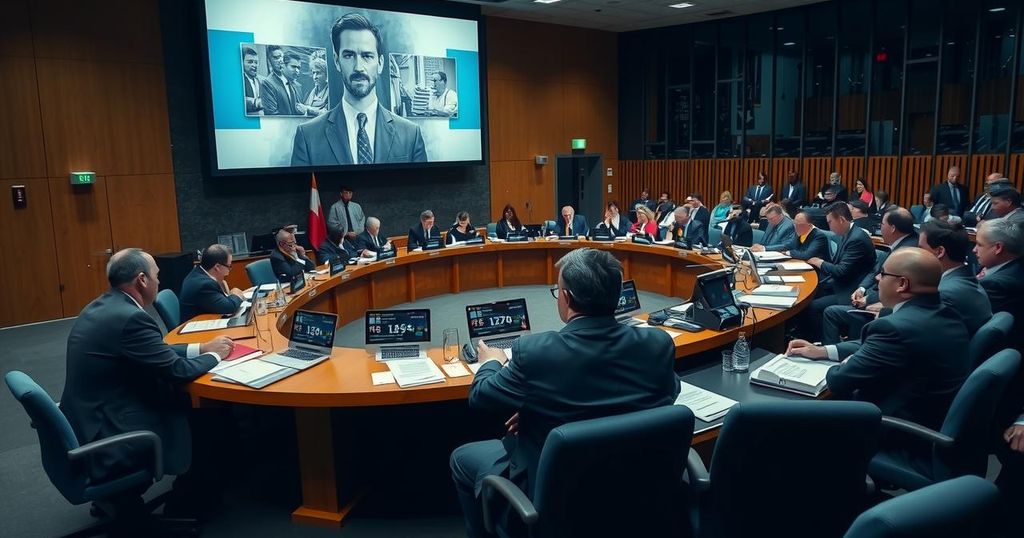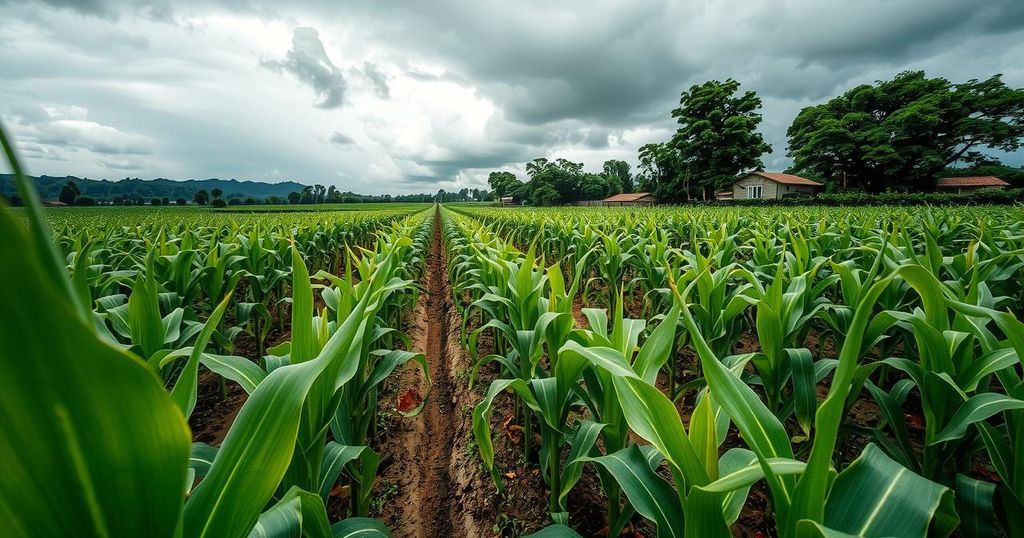Climate change
” OKEM, ANDREW OKEM, ASIA, AZERBAIJAN, BAKU, BRITISH QUAKERS, CLIMATE CHANGE, COLOMBIA, COOK, CUBA, ENVIRONMENT, FRIENDS WORLD COMMITTEE FOR CONSULTATION, INTERGOVERNMENTAL PANEL ON CLIMATE CHANGE, INTERNATIONAL LEAGUE FOR PEACE AND FREEDOM, IPCC, LINDSEY FIELD, NORTH AMERICA, PARIS AGREEMENT, QUAKER EARTHCARE WITNESS, QUAKER UNITED NATIONS OFFICE, QUAKERS, SGI, SGI - UK, SOKA GAKKAI INTERNATIONAL, SOUTH AMERICA, SUSTAINABILITY, WILPF, WOMEN, WOMEN ’ S INTERNATIONAL LEAGUE FOR PEACE AND FREEDOM
Jamal Walker
0 Comments
COP29 Delegates Address Climate Action and Global Safety Concerns
At COP29, delegates examined the relationship between climate action and global peace. Amid rising military spending and fossil fuel extraction, experts called for urgent action on environmental initiatives to enhance safety. Discussions highlighted the necessity of integrating climate solutions with peacebuilding efforts to address existential threats and foster sustainable communities. The insights revealed a crucial need for collaboration in addressing these pressing issues to secure a better future for humanity and the planet.
During COP29, as global attention centers on climate finance to mitigate dire environmental issues, delegates are concurrently addressing the pressing concerns surrounding global peace and stability. A side event, facilitated by organizations including Soka Gakkai International and the Quakers, prompted discussions about the relationships between climate action, peace, and safety for both humanity and the planet. Event moderator Lindsey Fielder Cook emphasized the paradox of escalating fossil fuel extraction amidst a backdrop of global military spending, which continues to rise at unprecedented levels. Experts gathered at the event discussed various dimensions of peace and safety in the context of climate change. Andrew Okem from the IPCC highlighted societal actions that can bolster safety, such as advancing climate-resilient agricultural systems and prioritizing rapid decarbonization through renewable energy adoption. He cautioned that delayed action on adaptation and mitigation could jeopardize future sustainability. Lucy Plummer from Soka Gakkai International articulated the urgent need to reconcile humanity’s relationship with nature, describing it as a “war” characterized by violence towards natural ecosystems. She contended that acknowledging the interconnectedness of climate and peace is essential for effective global solutions, positing that the Indigenous peoples’ insights into nature-centric wisdom should be actively integrated into discussions. Dr. Duncan McLaren underscored the reality of climate insecurity exacerbated by various stressors, asserting that emissions reductions, while critical, are not sufficient alone. He pointed to carbon removal technologies as potential tools for addressing the historical harm done to the planet, but emphasized that their effectiveness hinges on stringent reductions in emissions. Furthermore, Harriet Mackaill-Hill from International Alert examined the nexus between climate change and conflict, advocating for the COP29 New Collective Quantified Goal to be defined through the lens of human security and resource competition. Deborah Burton addressed the interconnectedness of military expenditures and climate finance, reporting that military-related emissions significantly contribute to global greenhouse gas outputs, thereby threatening human safety in the context of climate crises. Drawing from her experiences in Lebanon, Shirine Jurdi remarked on the absence of climate justice amidst warfare, illustrating how destruction weighs heavily on ecosystems and communities. She called for a shift in resource allocation toward ecological peacebuilding to foster sustainable and thriving communities. The discussions at COP29 vividly illustrate that achieving safety and peace in a climate-stressed world involves a holistic understanding of the interdependencies between environmental stewardship and societal well-being, demanding urgent and concerted efforts from all stakeholders involved.
The article highlights the discussions held during the COP29 summit in Baku, where delegates are not only focusing on climate finance but also addressing critical issues of global peace and safety. With the backdrop of rising military expenditures and fossil fuel extraction, there is growing concern about the impacts of climate change on peace and human security. Experts from various fields gathered to explore the linkages between climate action and conflict and to advocate for a holistic approach to maintaining safety in vulnerable regions globally. The dialogue emphasizes the significance of integrating environmental and peacebuilding strategies to mitigate existential risks associated with climate change.
In conclusion, the COP29 deliberations underscore the imperative to address the intricate connections between climate change, peace, and safety. As global threats intensify, stakeholders must converge on solutions that incorporate both climate action and conflict resolution. The insights shared by various experts serve as a call to recognize the necessity of sustainable practices and inclusive governance to secure a peaceful future on a more stable planet. Adoption of innovative strategies that prioritize ecological harmony is essential to fostering resilience against both climate changes and socio-political strife.
Original Source: www.ipsnews.net




Post Comment